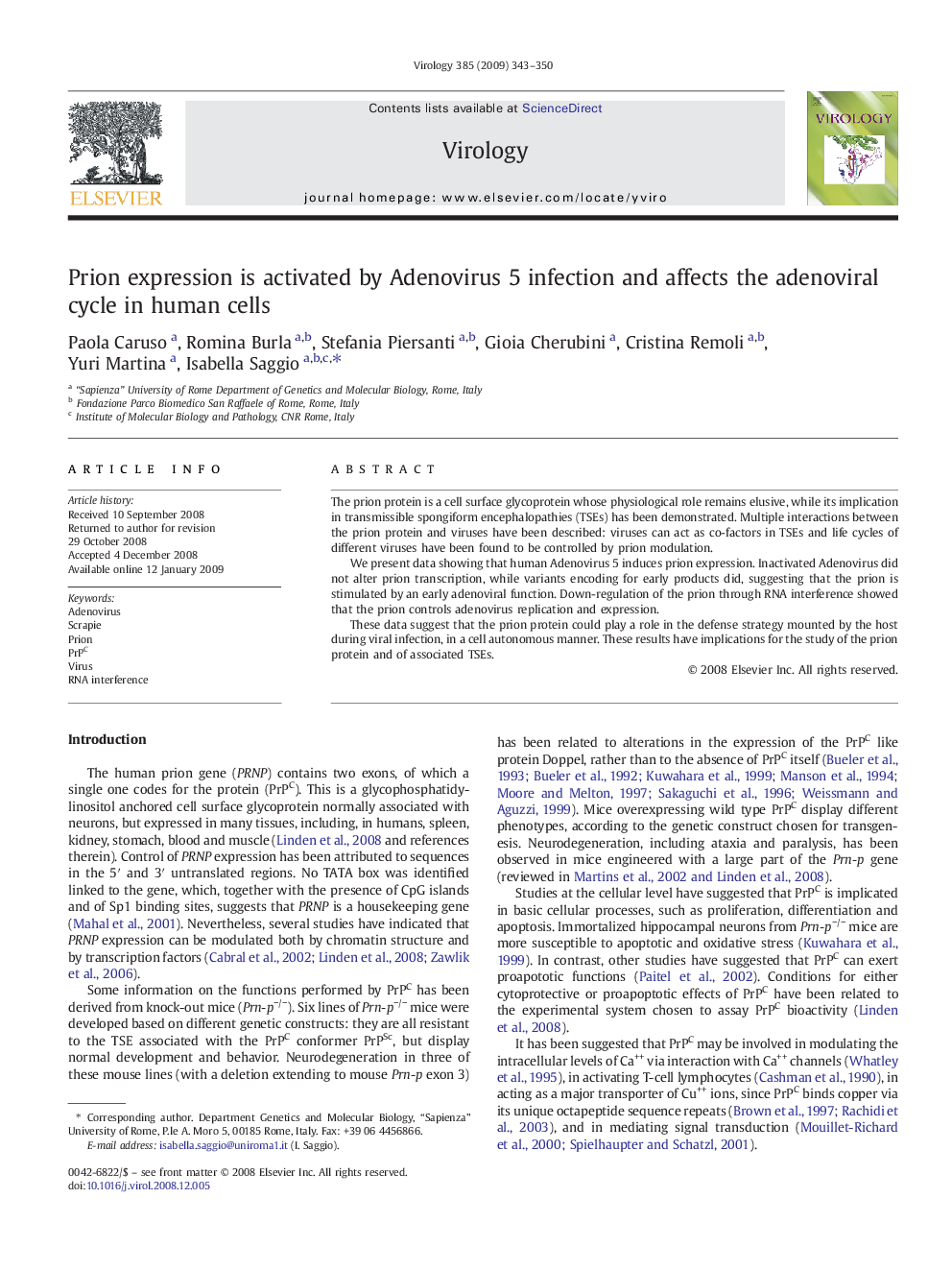| Article ID | Journal | Published Year | Pages | File Type |
|---|---|---|---|---|
| 3426378 | Virology | 2009 | 8 Pages |
The prion protein is a cell surface glycoprotein whose physiological role remains elusive, while its implication in transmissible spongiform encephalopathies (TSEs) has been demonstrated. Multiple interactions between the prion protein and viruses have been described: viruses can act as co-factors in TSEs and life cycles of different viruses have been found to be controlled by prion modulation.We present data showing that human Adenovirus 5 induces prion expression. Inactivated Adenovirus did not alter prion transcription, while variants encoding for early products did, suggesting that the prion is stimulated by an early adenoviral function. Down-regulation of the prion through RNA interference showed that the prion controls adenovirus replication and expression.These data suggest that the prion protein could play a role in the defense strategy mounted by the host during viral infection, in a cell autonomous manner. These results have implications for the study of the prion protein and of associated TSEs.
